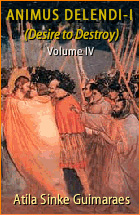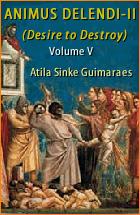NEWS: August 18, 2021
 |
 |
 |
 |
 |
 |
 |
Bird’s Eye View of the News

THE CHURCH BURNS -
La Chiesa Brucia: This alarmist title is the one Andrea Riccardi chose for his recent book. The basic underlying theme of the author is that the Church is on the edge of disappearing. For him the fire that scorched Notre Dame Cathedral is a symbol of the entire Catholic Church that is burning.
/bev259_ND.jpg) Mr. Riccardi imagines that he bases his work on indisputable facts – which are not always proven to be true, as I have shown in
another article. He analyzes the crisis in priestly vocations as well as the low attendance of the faithful at Sunday Masses in several countries to ask whether or not the Catholic Church is in her terminal phase.
Mr. Riccardi imagines that he bases his work on indisputable facts – which are not always proven to be true, as I have shown in
another article. He analyzes the crisis in priestly vocations as well as the low attendance of the faithful at Sunday Masses in several countries to ask whether or not the Catholic Church is in her terminal phase.
To these facts he adds his personal interpretations, affirming that the Church has become a part of the past; she is drowning in "irrelevance"; she is too far removed from society, and if she still wants to play a role, she must change her structures, habits and ways of being.
Although Mr. Riccardi unwillingly admits that the facts he points out do not exist in the Traditionalist Movement, where there is a growth in both priestly vocations and Mass attendance, he categorically declares that Traditionalism is not a solution because it will never be accepted by the masses…
He also dedicates a chapter to study whether the "National Catholicism" that has appeared in some European countries – mainly Hungary and Poland – could be a solution for the future. He concludes that no, they are not a solution because these systems represent "political Manichaeism" that is not open to evolution and a peaceful coexistence with their political/ideological enemies.
/bev259_Sor.jpg)
/bev259_For.jpg) The crux of the crisis for Mr. Riccardi comes from the changes in society that resulted from the 1968 Sorbonne Revolution, or what in the U.S. we call the ‘60s Revolution. (1) These changes include:
The crux of the crisis for Mr. Riccardi comes from the changes in society that resulted from the 1968 Sorbonne Revolution, or what in the U.S. we call the ‘60s Revolution. (1) These changes include:
These changes actually did take place in society, I agree, but the conclusion of the author is not correct.
The Catholic Church has changed many de facto situations during her History. Think for a minute of the Roman Empire and the invasions of the Barbarians. The Church neither adapted to the world of Paganism in the case of the Romans nor to the Arianism of the Barbarians. Instead, she confronted both errors and converted the former as well as the latter.
The same solution should be applied to the errors of the '60s. The Church should not by any means adapt to these errors and change herself. She should convert those contaminated by these errors and vices.
The fact that the author considers these changes as an immutable phase of History shows that he – like most progressivists – is a radical partisan of universal evolution. If he had lived in the time of the Romans or the Barbarians, he would likely have considered those realities as immutable parts of man's evolution and would have proposed that the Church accept those errors and bad customs.
So then, for Mr. Riccardi, Catholicism should cease to be "a sad and cold repression of the pleasures" imposed by a "vertical structure," and should make the Church a "school of communion."
/bev259_Ric.jpg) He praises Francis' unfettered speech turned directly to the people because it has dismantled the "pyramidal vision of the Church, by not using intermediaries." He also admires Bergoglio's "Church in exit" because it brings the poor and the immigrant to the center of the Church.
He praises Francis' unfettered speech turned directly to the people because it has dismantled the "pyramidal vision of the Church, by not using intermediaries." He also admires Bergoglio's "Church in exit" because it brings the poor and the immigrant to the center of the Church.
The structure of the parish should disappear and be replaced by popular and charismatic movements that are in a direct "encounter" with the people. The parish should no longer be a territorial reality but a virtual reality adapted to the global village in which we live.
Another consummate fact that Mr. Riccardi accepts without discussion is "globalization." It is part of the unquestioned evolution… So, the Church should favor an equal distribution of wealth to provide for the common destiny of all and to prevent the poor from suffering.
The author considers Assisi a landmark where the religions stop attacking one another. But even before Assisi, it was Vatican II that "liberated uniting and ecumenical energies" that led to a global dialogue. For the Church of the future he coins this formula: "Dialogue must become the art of living. Ecumenism must become civilization." The "culture of the encounter" must dominate society. Encounter is understood as being open and listening to the "truth" of each person.
The Christianity for the global world proposed by Francis is centered on mercy and tenderness toward the poor, the isolated, the immigrant, ecology, peace and fraternity.
No more closed structures, no more isolated islands, no walls but bridges. Everyone has something that is Christian in himself.
Crisis is the normal condition for the Church. She should convince herself that she is not destined to triumph and control society. Crisis is the ticket to the future, to a new conception of the global world.
This is what Mr. Riccardi sets out in his book.
What is curious to me is the way Progressivism argues. Since the times of Pius XII, we have been hearing that the Church is outdated and should adapt to the modern world in order to attract people. However, during that period the Catholic Church reached an apogee of splendor in her ceremonies and doctrine, the seminaries and novitiates were filled, the number of Catholics was constantly growing and the missionary work had reached an unheard-of expansion throughout the entire world.
Nonetheless, at Vatican II the Popes decided to change the Church and make her similar to the world. The result was the modification of her doctrine, the destruction of her structures, the crisis in the clergy and religious orders, and the emptying of her churches.
Now, after more than 50 years of constant demolition using that same sophism, it has become obvious to all that the whole process of adaptation was a catastrophe. So, what does Progressivism propose? Is it to return to the Church as she was before? No. It proposes that she must accept the crisis, the failure, the destruction as her normal life, which is tantamount to condemning her to death.
/bev259_Sun.jpg) How can anyone deny that Progressivism is the greatest enemy of the Church as it is already commemorating her death?
How can anyone deny that Progressivism is the greatest enemy of the Church as it is already commemorating her death?
But, in this lies another great mistake of the One who inspires this destruction. From the apparent death of the Church, from the stones strewn on the ground, from the ruins of this sacred edifice, a new era of glory will come that will be the culmination of History, the most exquisite canticle of the glorification of God, which will astound both men and angels for ever: the Reign of Mary.

/bev259_ND.jpg)
The burning of Notre Dame as a symbol of the fire ignited by Progressivism in the Catholic Church
To these facts he adds his personal interpretations, affirming that the Church has become a part of the past; she is drowning in "irrelevance"; she is too far removed from society, and if she still wants to play a role, she must change her structures, habits and ways of being.
Although Mr. Riccardi unwillingly admits that the facts he points out do not exist in the Traditionalist Movement, where there is a growth in both priestly vocations and Mass attendance, he categorically declares that Traditionalism is not a solution because it will never be accepted by the masses…
He also dedicates a chapter to study whether the "National Catholicism" that has appeared in some European countries – mainly Hungary and Poland – could be a solution for the future. He concludes that no, they are not a solution because these systems represent "political Manichaeism" that is not open to evolution and a peaceful coexistence with their political/ideological enemies.
/bev259_Sor.jpg)
May ‘68: Students take over the Sorbonne; on the walls its motto: ‘It is forbidden to forbid’
/bev259_For.jpg)
- The authority of the father, teacher, priest and employer ended;
- The patriarchate and hegemony of men ended;
- The "culture of obligation" ended, with the consequent relativization of moral and social rules;
- The family stopped being a model for society;
- With the end of authority, people rose up with a communitarian dimension;
- A new religiosity turned toward emotions appeared.
These changes actually did take place in society, I agree, but the conclusion of the author is not correct.
The Catholic Church has changed many de facto situations during her History. Think for a minute of the Roman Empire and the invasions of the Barbarians. The Church neither adapted to the world of Paganism in the case of the Romans nor to the Arianism of the Barbarians. Instead, she confronted both errors and converted the former as well as the latter.
The same solution should be applied to the errors of the '60s. The Church should not by any means adapt to these errors and change herself. She should convert those contaminated by these errors and vices.
The fact that the author considers these changes as an immutable phase of History shows that he – like most progressivists – is a radical partisan of universal evolution. If he had lived in the time of the Romans or the Barbarians, he would likely have considered those realities as immutable parts of man's evolution and would have proposed that the Church accept those errors and bad customs.
So then, for Mr. Riccardi, Catholicism should cease to be "a sad and cold repression of the pleasures" imposed by a "vertical structure," and should make the Church a "school of communion."
/bev259_Ric.jpg)
Francis greats his admirer Andrea Riccardi
The structure of the parish should disappear and be replaced by popular and charismatic movements that are in a direct "encounter" with the people. The parish should no longer be a territorial reality but a virtual reality adapted to the global village in which we live.
Another consummate fact that Mr. Riccardi accepts without discussion is "globalization." It is part of the unquestioned evolution… So, the Church should favor an equal distribution of wealth to provide for the common destiny of all and to prevent the poor from suffering.
The author considers Assisi a landmark where the religions stop attacking one another. But even before Assisi, it was Vatican II that "liberated uniting and ecumenical energies" that led to a global dialogue. For the Church of the future he coins this formula: "Dialogue must become the art of living. Ecumenism must become civilization." The "culture of the encounter" must dominate society. Encounter is understood as being open and listening to the "truth" of each person.
The Christianity for the global world proposed by Francis is centered on mercy and tenderness toward the poor, the isolated, the immigrant, ecology, peace and fraternity.
No more closed structures, no more isolated islands, no walls but bridges. Everyone has something that is Christian in himself.
Crisis is the normal condition for the Church. She should convince herself that she is not destined to triumph and control society. Crisis is the ticket to the future, to a new conception of the global world.
This is what Mr. Riccardi sets out in his book.
What is curious to me is the way Progressivism argues. Since the times of Pius XII, we have been hearing that the Church is outdated and should adapt to the modern world in order to attract people. However, during that period the Catholic Church reached an apogee of splendor in her ceremonies and doctrine, the seminaries and novitiates were filled, the number of Catholics was constantly growing and the missionary work had reached an unheard-of expansion throughout the entire world.
Nonetheless, at Vatican II the Popes decided to change the Church and make her similar to the world. The result was the modification of her doctrine, the destruction of her structures, the crisis in the clergy and religious orders, and the emptying of her churches.
Now, after more than 50 years of constant demolition using that same sophism, it has become obvious to all that the whole process of adaptation was a catastrophe. So, what does Progressivism propose? Is it to return to the Church as she was before? No. It proposes that she must accept the crisis, the failure, the destruction as her normal life, which is tantamount to condemning her to death.
/bev259_Sun.jpg)
From the ruins of the present day destruction a new era of glory will come for the Catholic Church
But, in this lies another great mistake of the One who inspires this destruction. From the apparent death of the Church, from the stones strewn on the ground, from the ruins of this sacred edifice, a new era of glory will come that will be the culmination of History, the most exquisite canticle of the glorification of God, which will astound both men and angels for ever: the Reign of Mary.
- Except for the United States, the entire world considers the 1968 Sorbonne Revolution, aka May 1968, as a landmark in the world's history. Since in the U.S. we had the multiple rebellions of the 1960s, which in many ways prepared the way for the Sorbonne Revolution, here we refer to the same phenomenon as the '60s Revolution or, more generically, the Cultural Revolution.
















